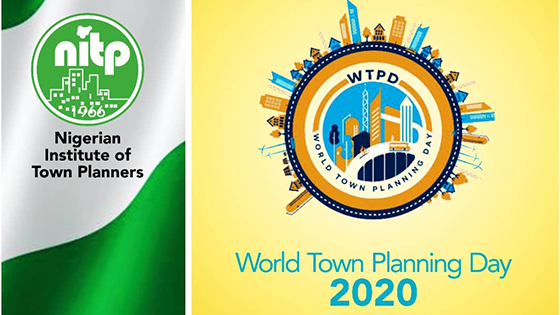The world’s attention is today drawn to another landmark celebration, the World Town Planning Day. November 8 of every year has been used to celebrate the ideals of town planning since the past 71 years. The day is given special recognition aimed at promoting the role of Town Planning in establishing livable urban communities, creating awareness of the environmental impact produced by development of cities and territories, and bringing together professional planners and the general community to see how the world’s settlements can be shaped into ideal places that people want to live, work and play in.
Basic to the role of Town Planning is its power of creativity, turning harsh conditions into a relatively more comfortable environment for living and recreating, as well as setting the stage for productivity. Like a human life deliberately planned, prepared and shaped for particular assignments, cities and communities can also be planned, prepared and shaped for livability of man and other living organisms.
To its credit, Town Planning, where optimally employed, has been responsible for upholding the social pillars of equity, diversity and inclusion, without which urban societies would be disconnected. Severally, and in more recent past, Town Planning has focused on making the urban area livable for humanity by promoting the principles of Cities for All, Leaving No one behind, recognising and maintaining biodiversity and enhancing inclusion through citizens’ engagement.
The developing world, including Nigeria, has only enjoyed a limited measure of the benefits of Town Planning. This is because due recognition has not been given to the profession and its practice. The truth, however, is that Town Planning can be ignored only at the peril of the one who ignores it. The signs of lack of attention to Town Planning in our clime are quite visible, ranging from disorganized physical environment, disjointed road networks, uncoordinated housing development, lack of physical and social infrastructure to uncompleted projects, making way for the springing up of informal settlements, congestion of limited facilities and thereby putting a strain on the capacity of the urban areas for resilience to natural and artificial disasters.
Town Planning has been used effectively to cope with issues of unsustainable development, population growth and climate change. The experience of the COVID-19 pandemic has now, more than ever, brought to fore the significance of Town and the need for us to plan our human settlements, particularly urban areas which are said to accommodate about 55% of the world’s population. Areas with best practices of Town Planning have demonstrated capacity for resilience which those without planning do not have. This fact points to the need to embrace Town Planning from national to local levels. Policy makers and the political class need to understand that all programmes and promises have spatial implications, and that makes Town Planning, which emphasises spatial arrangement of human activities, very important.
An opportunity to have recourse to Town Planning recently presented itself in our nation following the mass destruction of urban facilities, structures and infrastructure that occurred as an aftermath of the #EndSARS protests. We are now faced with the damage to our urban environment and the need to rebuild our broken cities. This is an opportunity to employ Town Planning and engage Town Planners for the remodeling of areas where destruction has taken place and seek to regenerate them to be more functional and resilient.
The Nigerian Institute of Town Planners is willing, ready and available to provide professional services, in this regard, as our contribution to the redevelopment of our human settlements. We wish all Nigerians a good celebration of the World Town Planning Day 2020.
Tpl. Olutoyin Ayinde FNITP
National President NITP
Source: https://www.nitpng.org/

